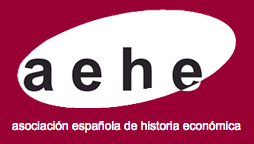Monetary shadow of deficit, Spain 1874–1998
DOI:
https://doi.org/10.1016/S1698-6989(11)70006-6Keywords:
Deficit, Money, E5, H6, N1Abstract
According to the literature, the predominance of budget deficits conditioned money growth in Spain while the peseta was its currency. The idea of a long-running fiscal interference in monetary dynamics is partly backed by the contribution of the public component to monetary base growth in 1874–1998. This paper confirms the existence of this interference by finding a long-running causal relationship between budget and money for the whole period. The weakening of causality between budget and the monetary base allows us to locate the end of seigniorage in Spain in the mid-1980s. It is not until the 1990s that the weakening of causality between budget and a broader definition of money (Liquid Assets held by the Public) reflected the efforts towards nominal convergence prior to joining the European Monetary Union.Downloads
Downloads
How to Cite
Issue
Section
License
Aquellos autores/as que tengan publicaciones con esta revista, aceptan los términos siguientes
- Los autores/as conservarán sus derechos de autor y garantizarán a la revista el derecho de primera publicación de su obra, el cuál estará simultáneamente sujeto a la Licencia de reconocimiento de Creative Commons Reconocimiento-No comercial-Sin obra derivada 4.0 Internacional que permite a terceros compartir la obra siempre que se indique su autor y su primera publicación esta revista, y no permite hacer uso comercial de la misma ni tampoco obras derivadas.
- Los autores/as podrán adoptar otros acuerdos de licencia no exclusiva de distribución de la versión de la obra publicada (p. ej.: depositarla en un archivo telemático institucional o publicarla en un volumen monográfico) siempre que se indique la publicación inicial en esta revista.
Plagio y fraude científico
La publicación de un trabajo que atente contra los derechos de propiedad intelectual será responsabilidad de los autores/as, que serán los que asuman los conflictos que pudieran tener lugar por razones de derechos de autor. Los conflictos más importantes pueden darse por la comisión de plagios y fraudes científicos.
Se entiende por plagio:
- Presentar el trabajo ajeno como propio.
- Adoptar palabras o ideas de otros autores sin el debido reconocimiento.
- No emplear las comillas u otro formato distintivo en una cita literal.
- Dar información incorrecta sobre la verdadera fuente de una cita.
- El parafraseo de una fuente sin mencionar la fuente.
- El parafraseo abusivo, incluso si se menciona la fuente.
Las prácticas constitutivas de fraude científico son las siguientes:
- Fabricación, falsificación u omisión de datos y plagio.
- Publicación duplicada.
- Conflictos de autoría.





